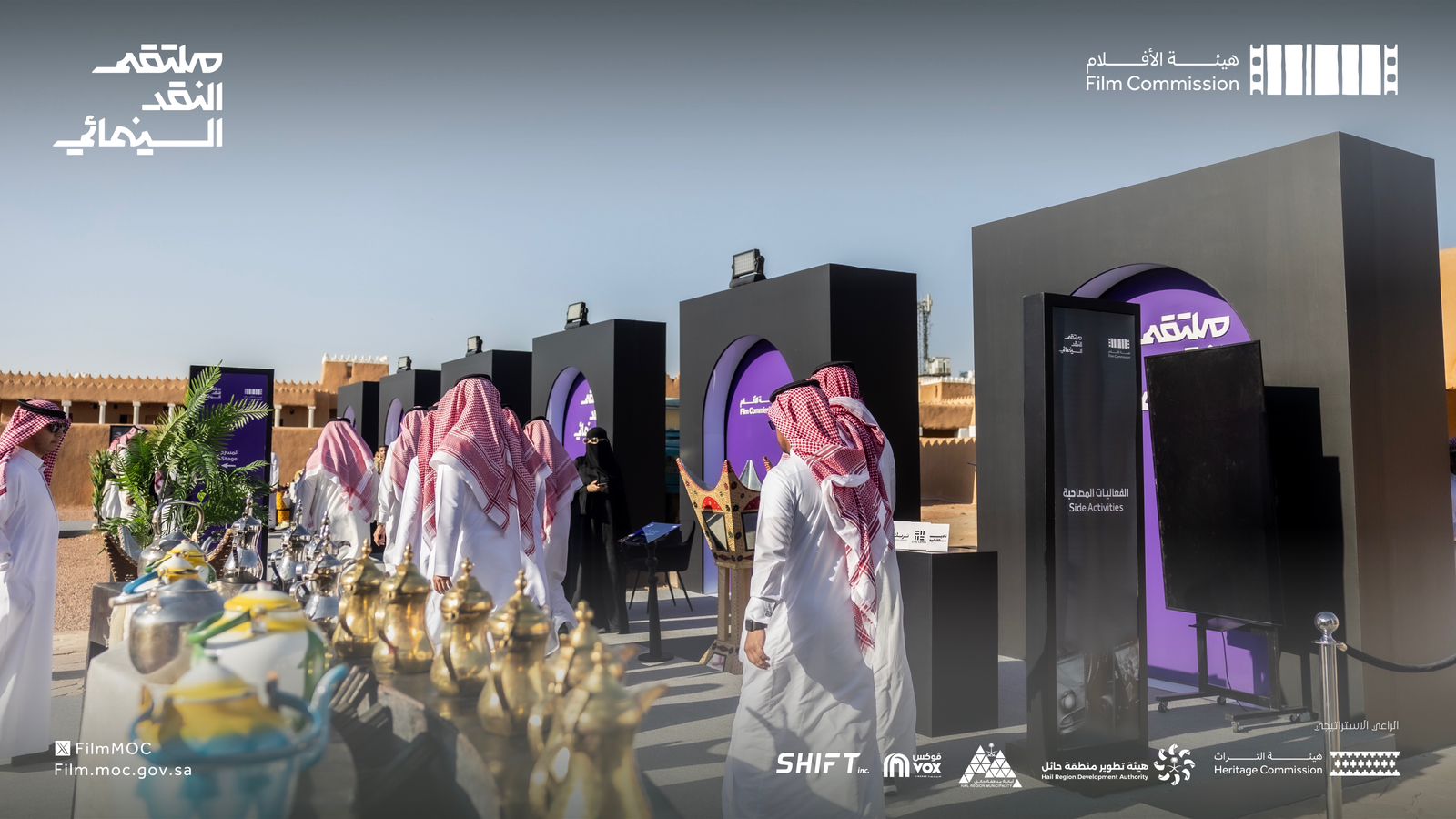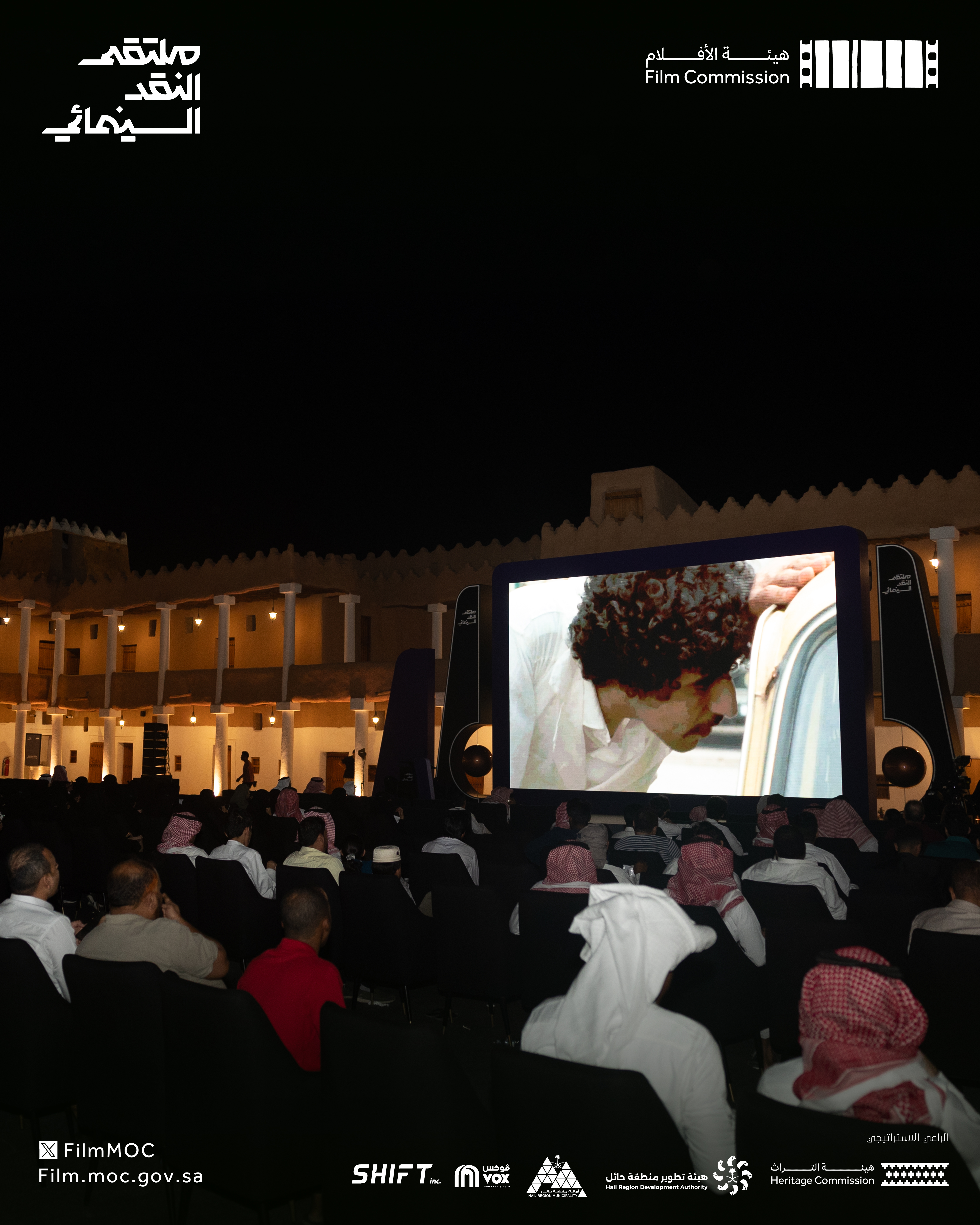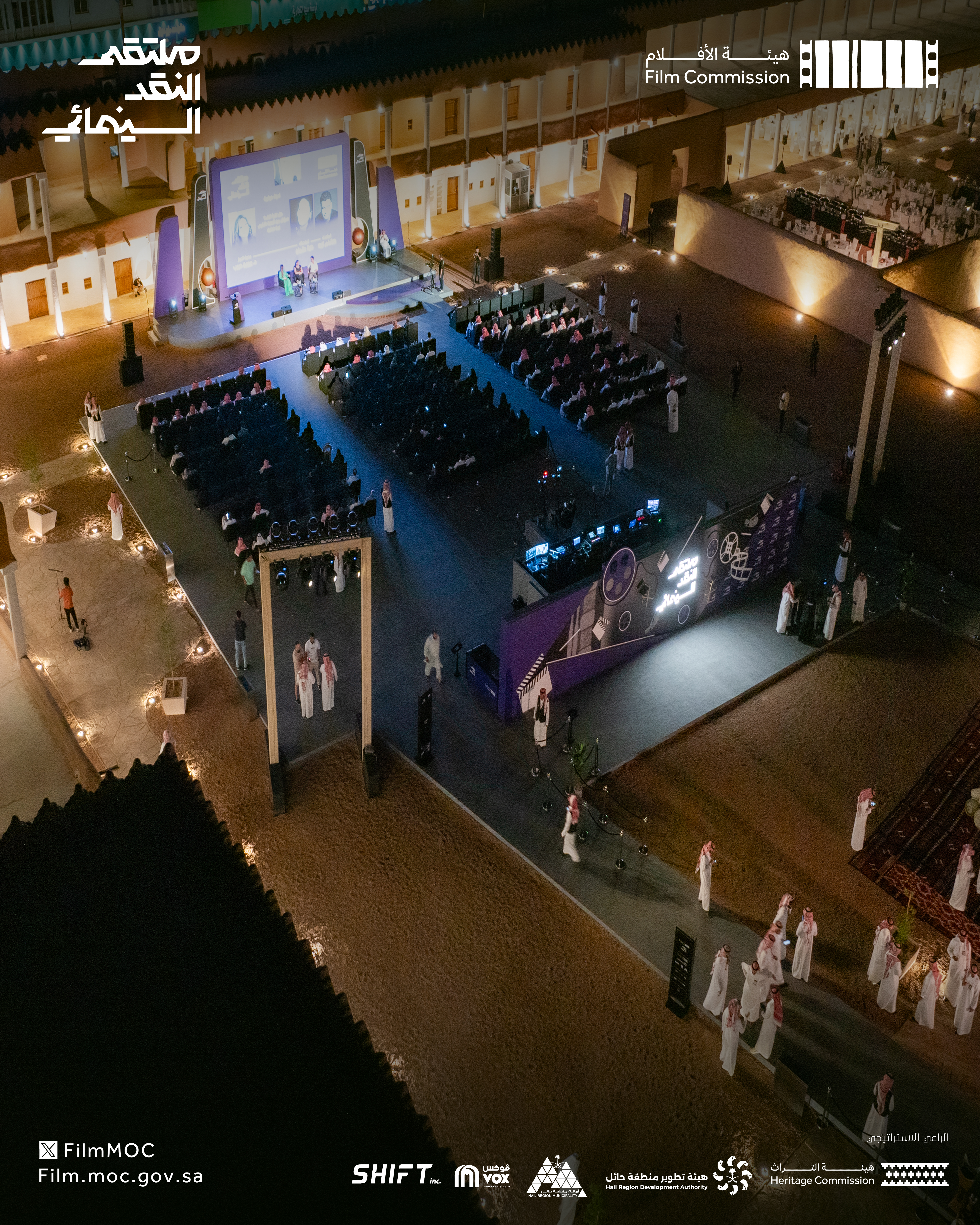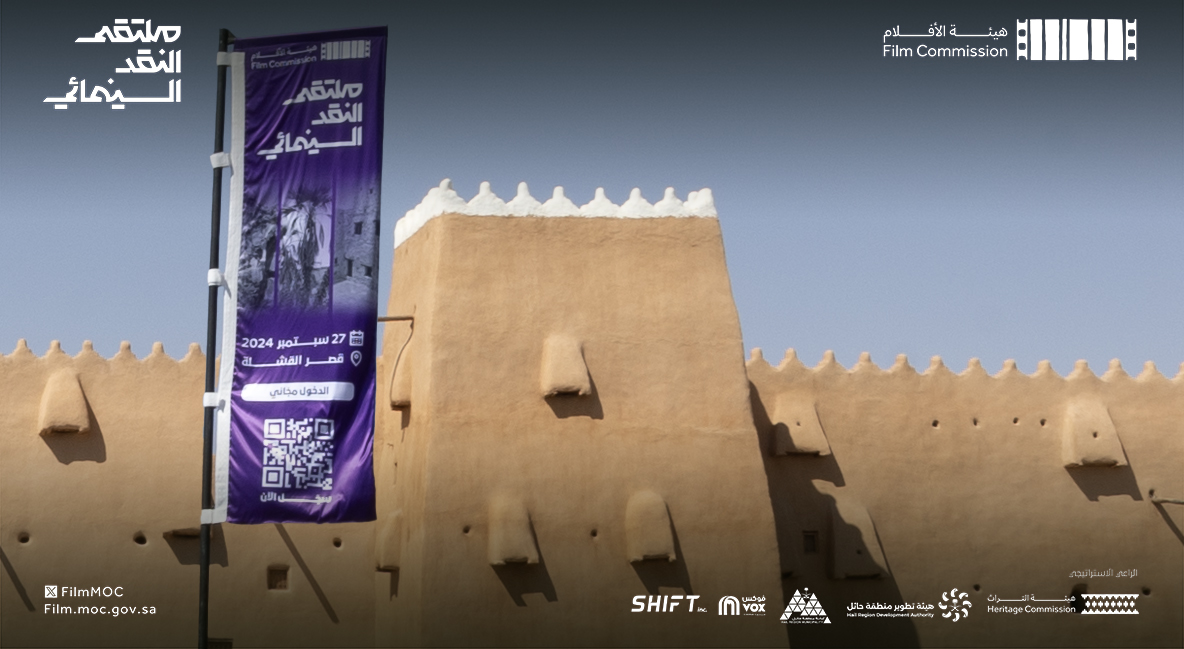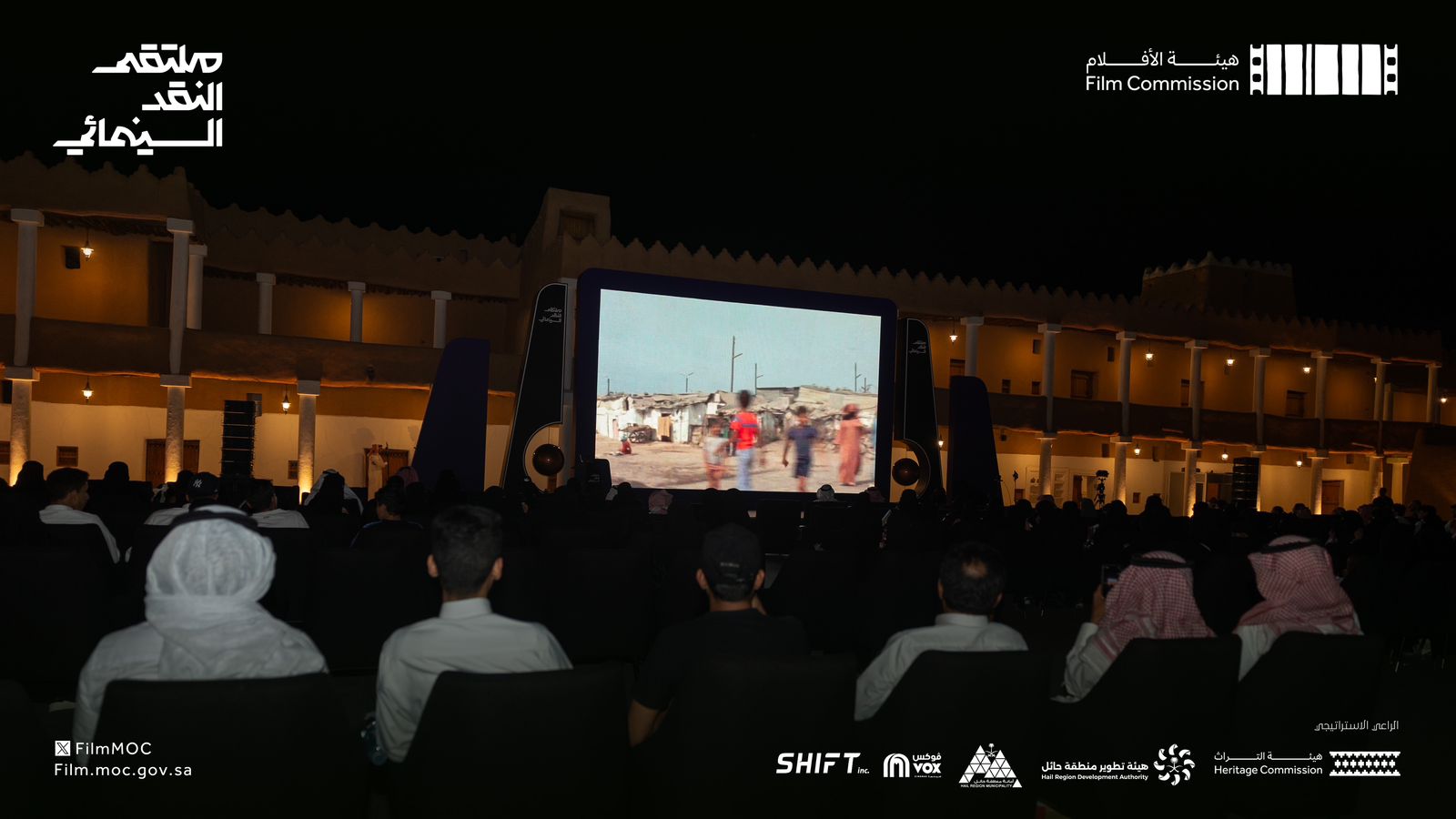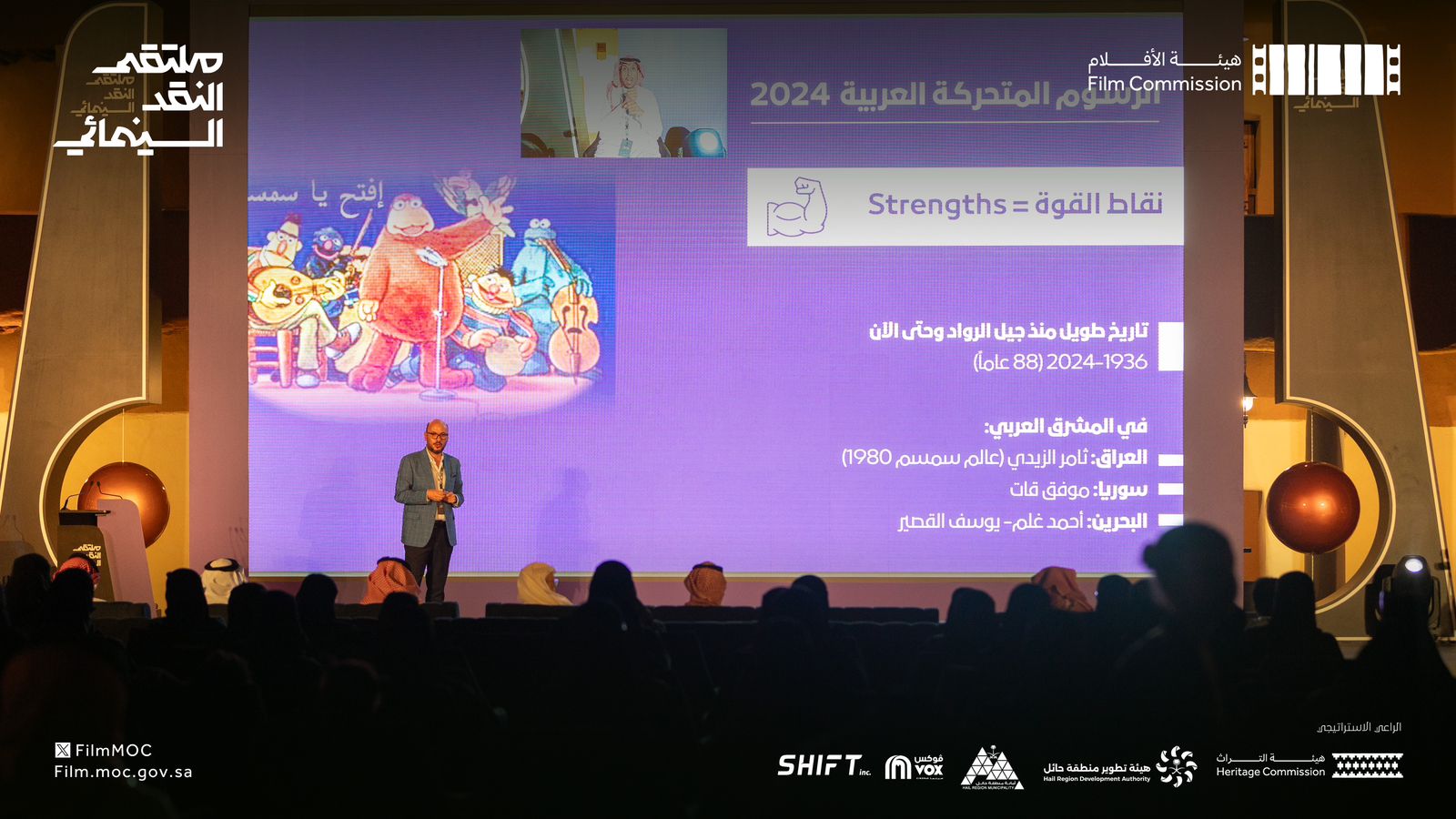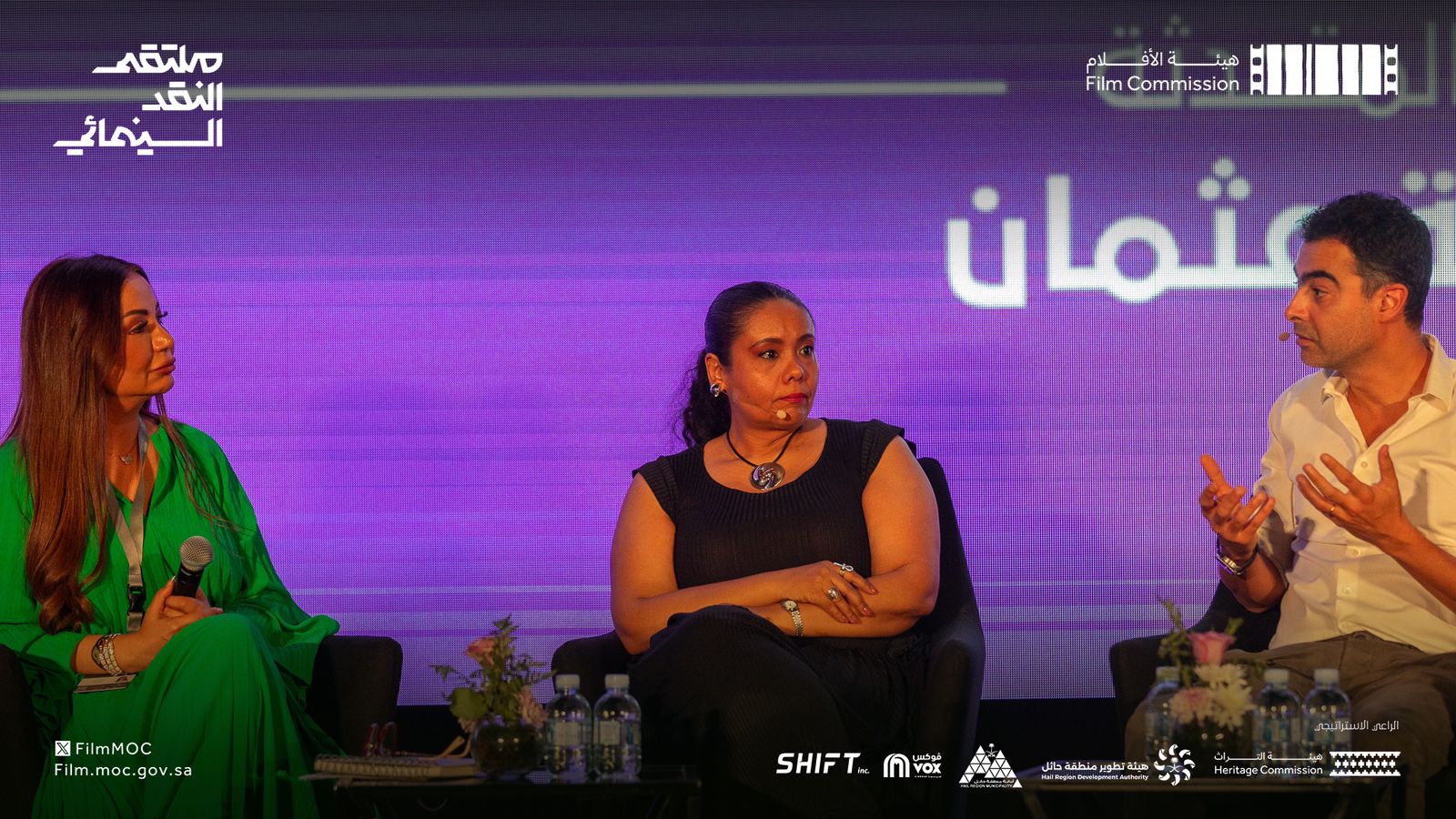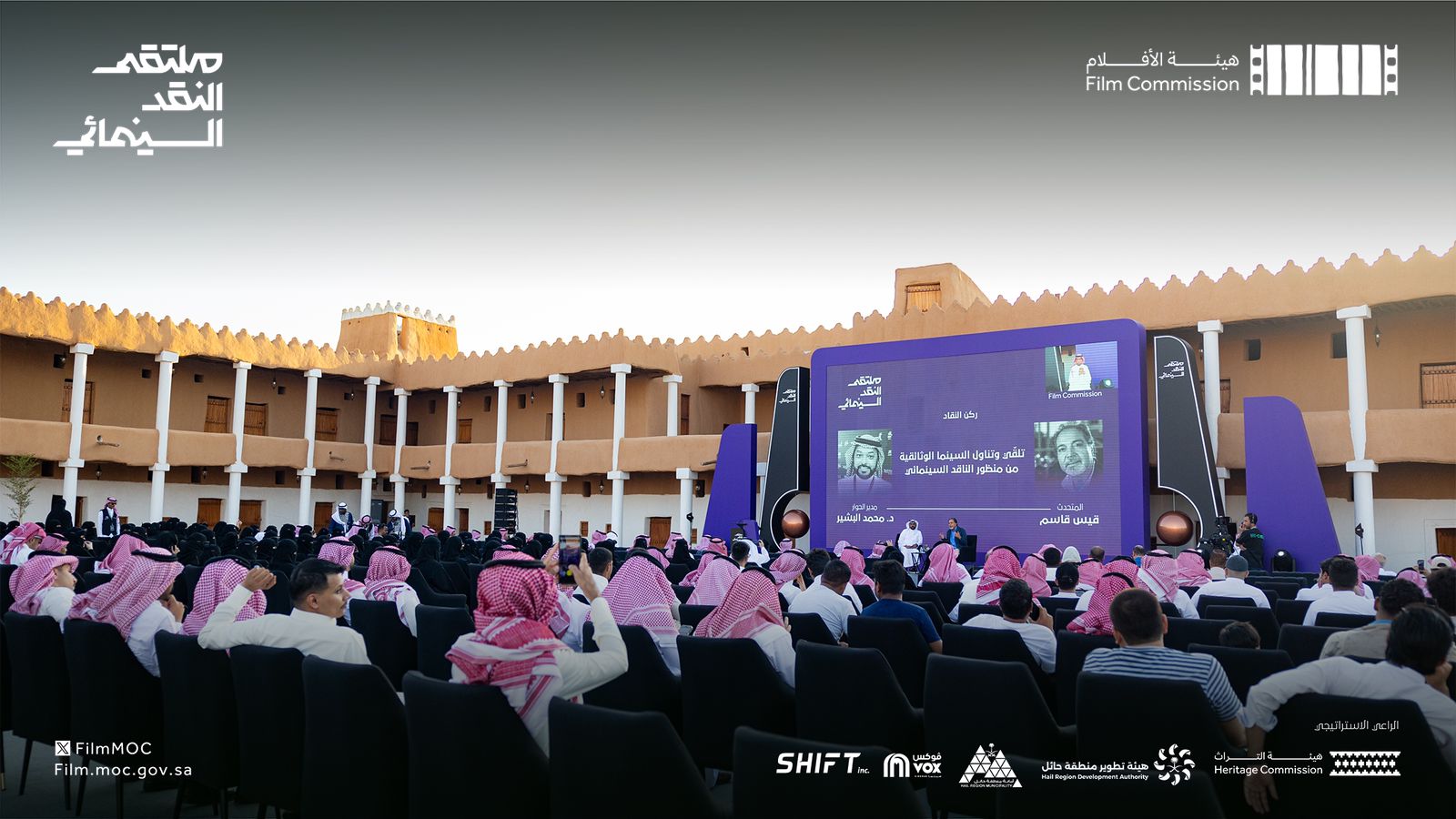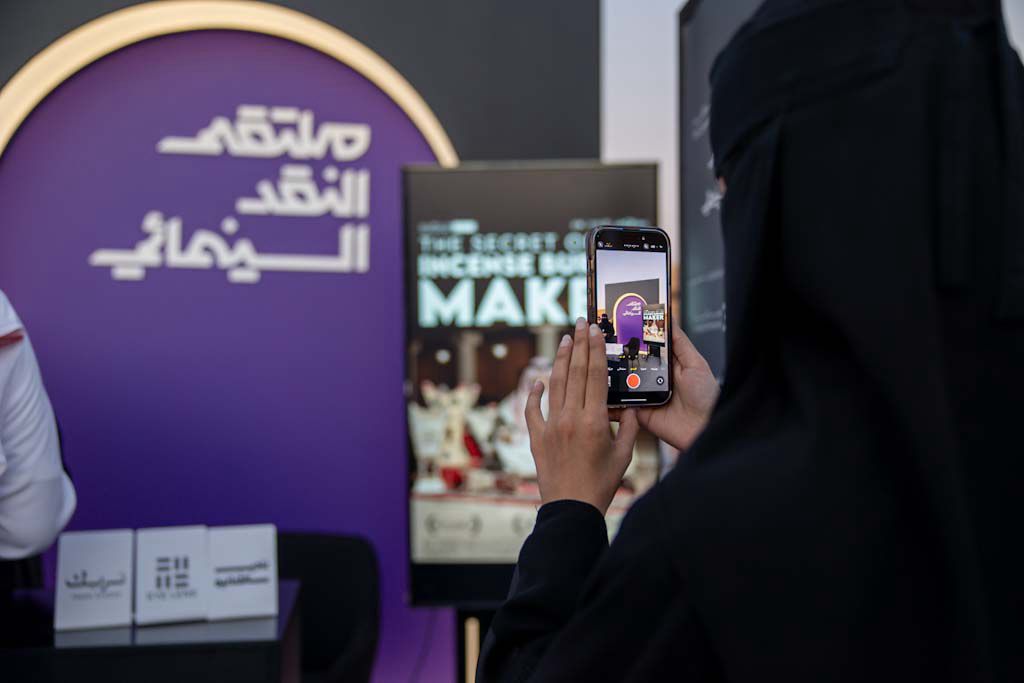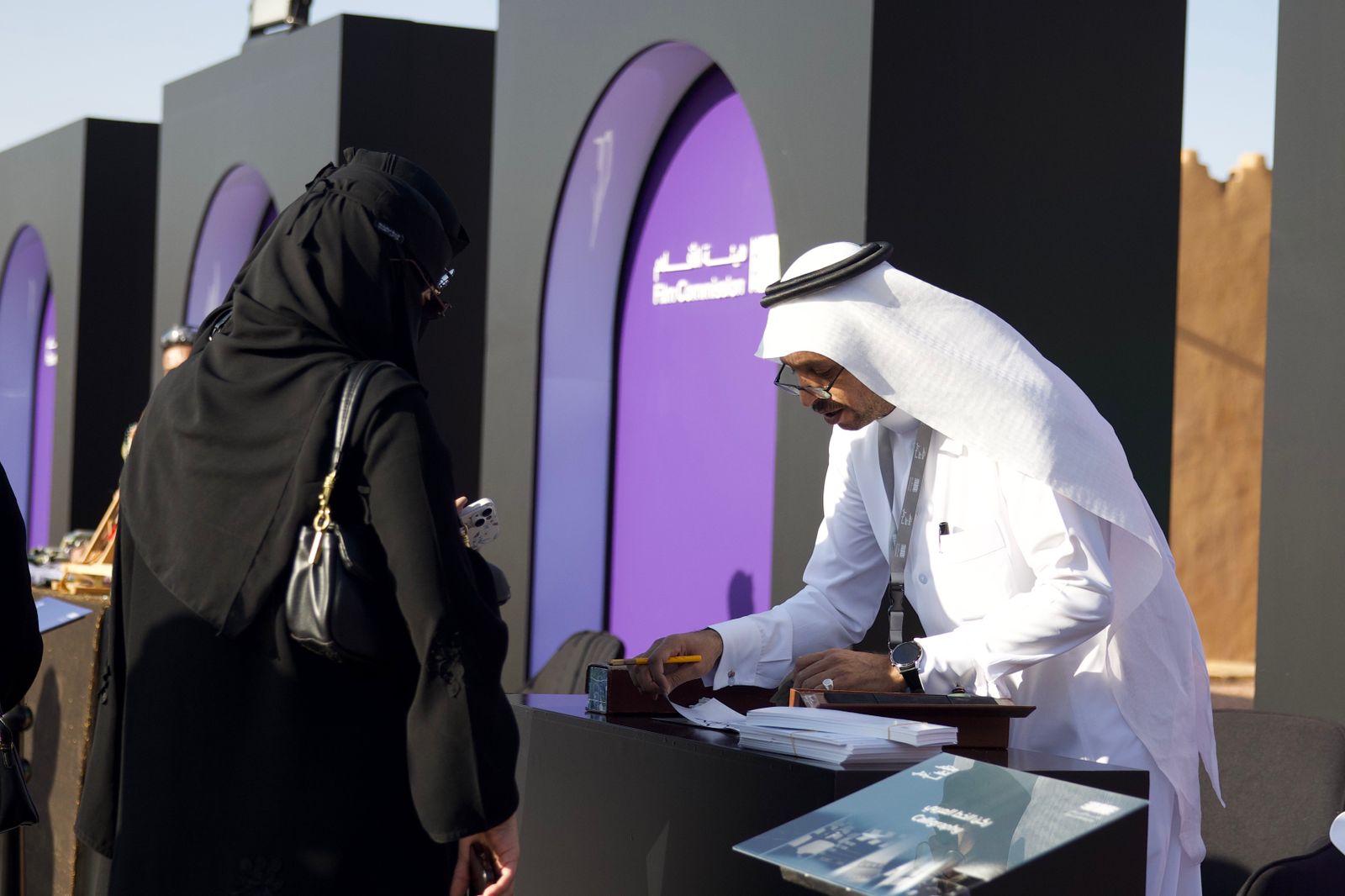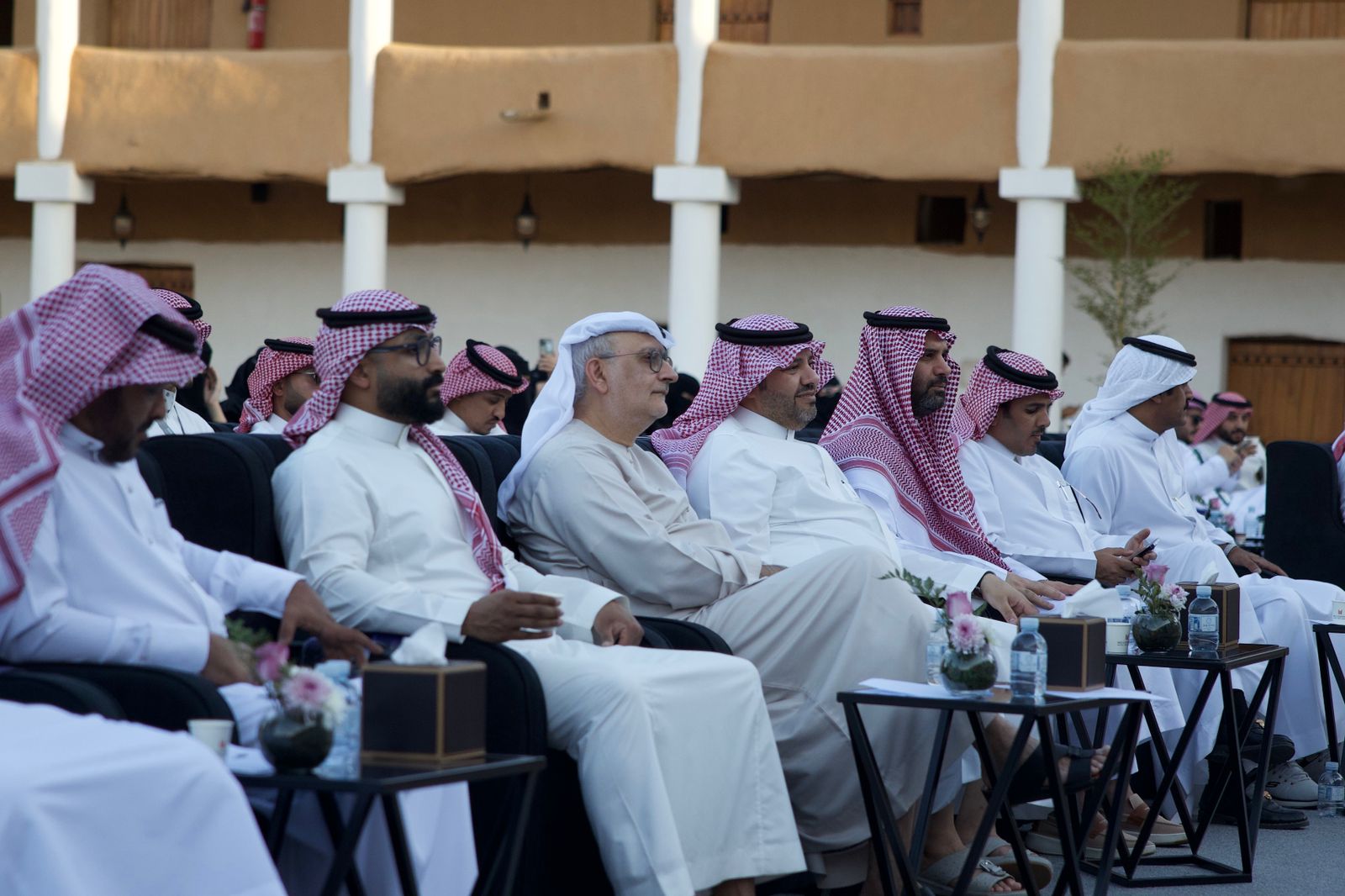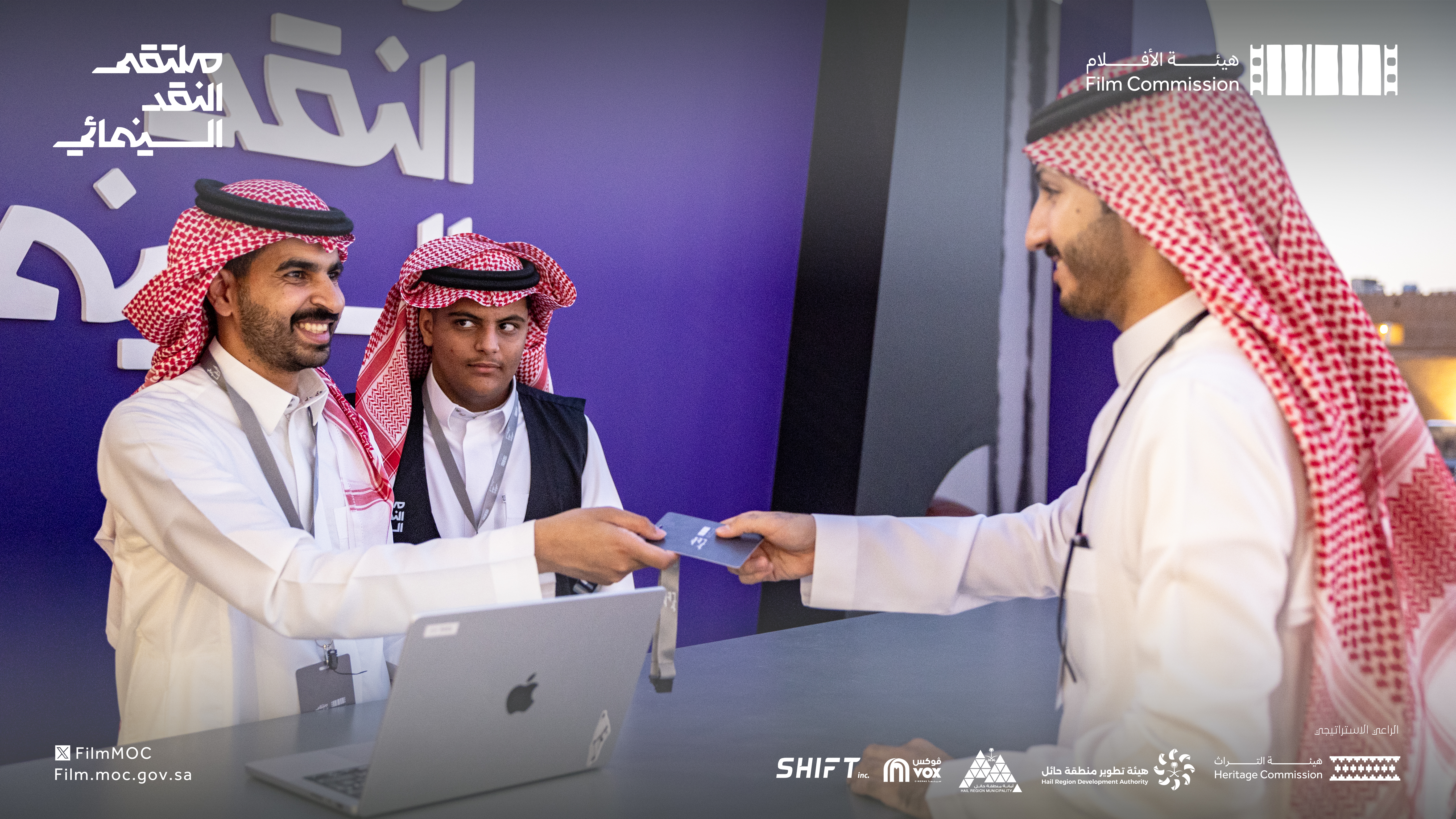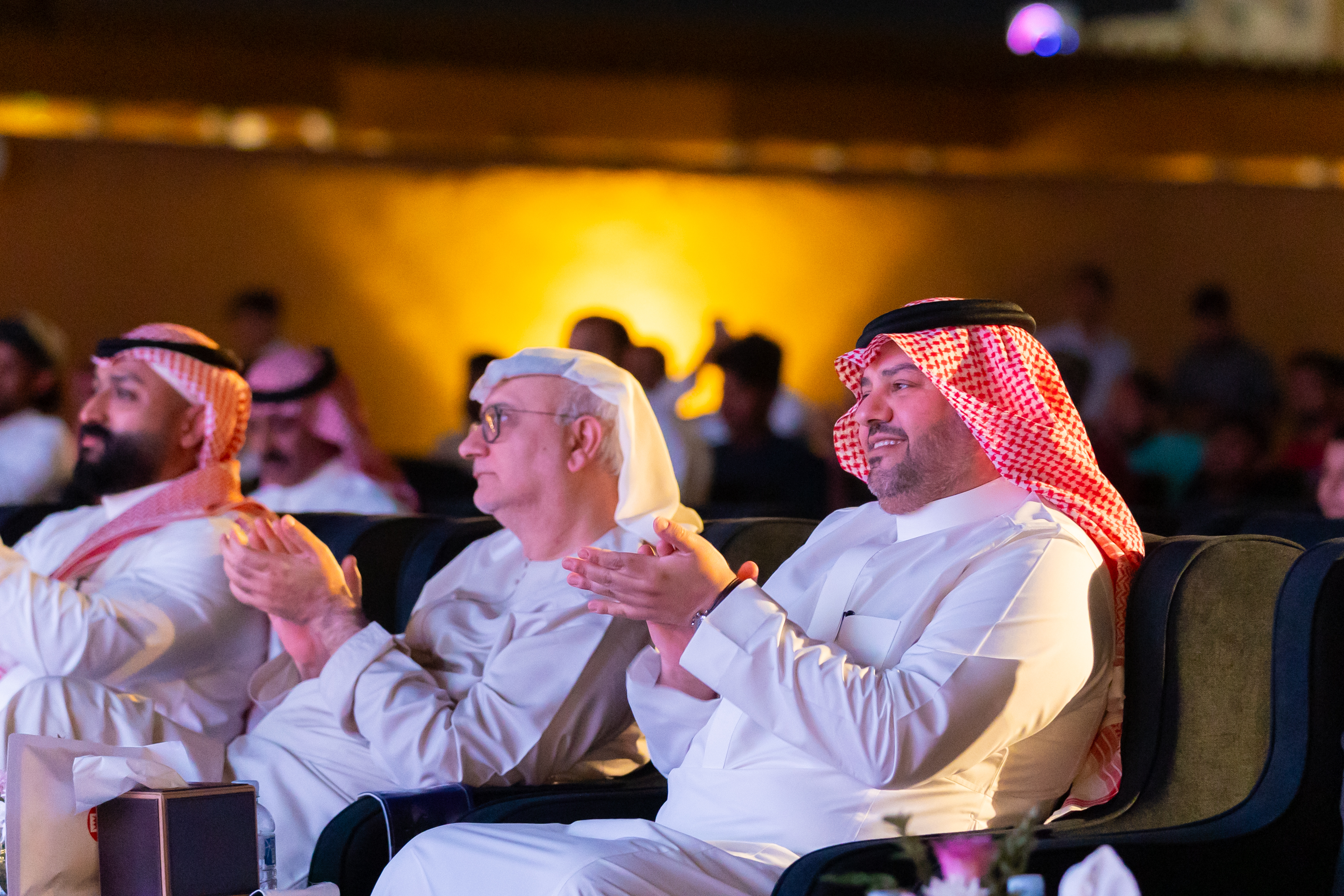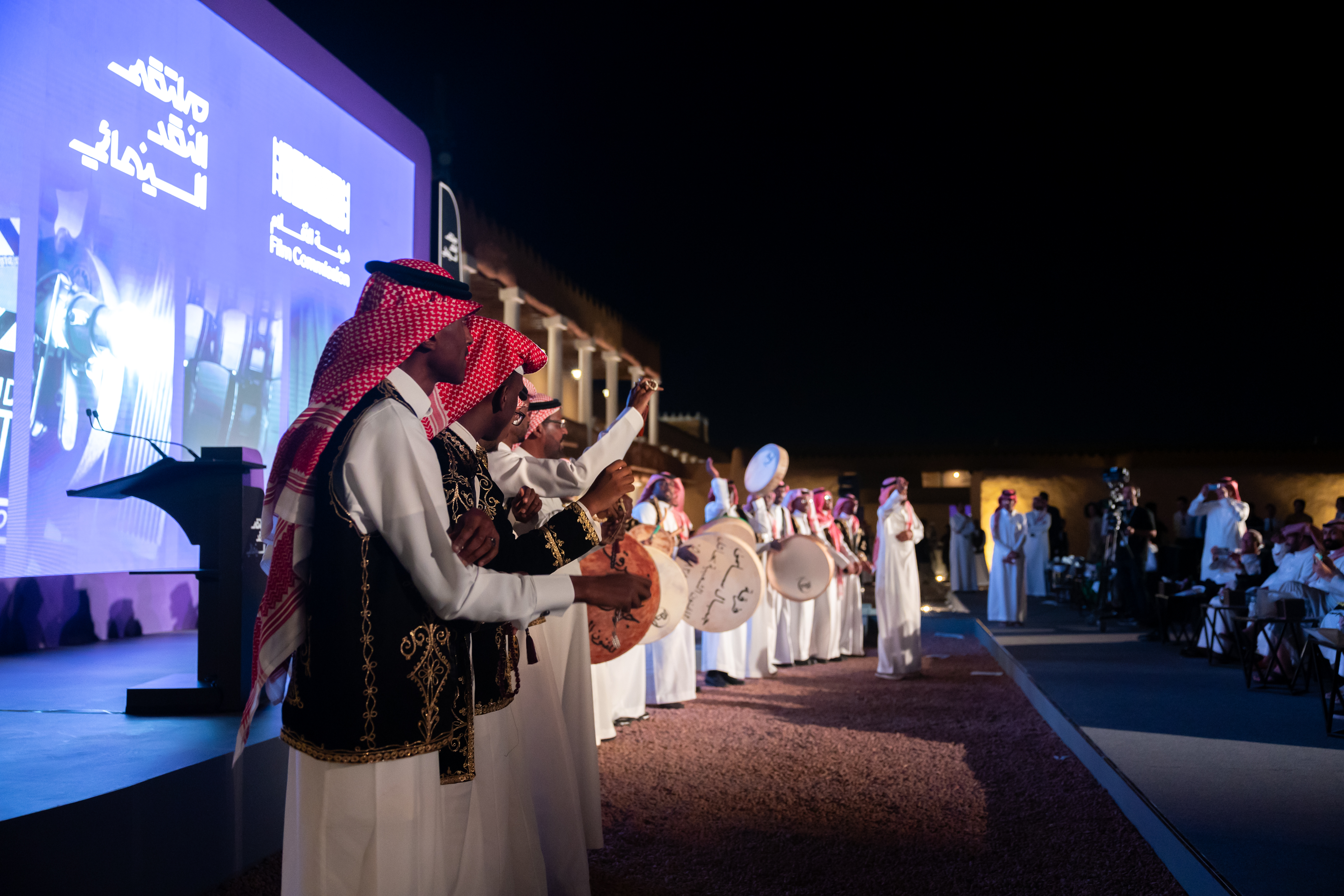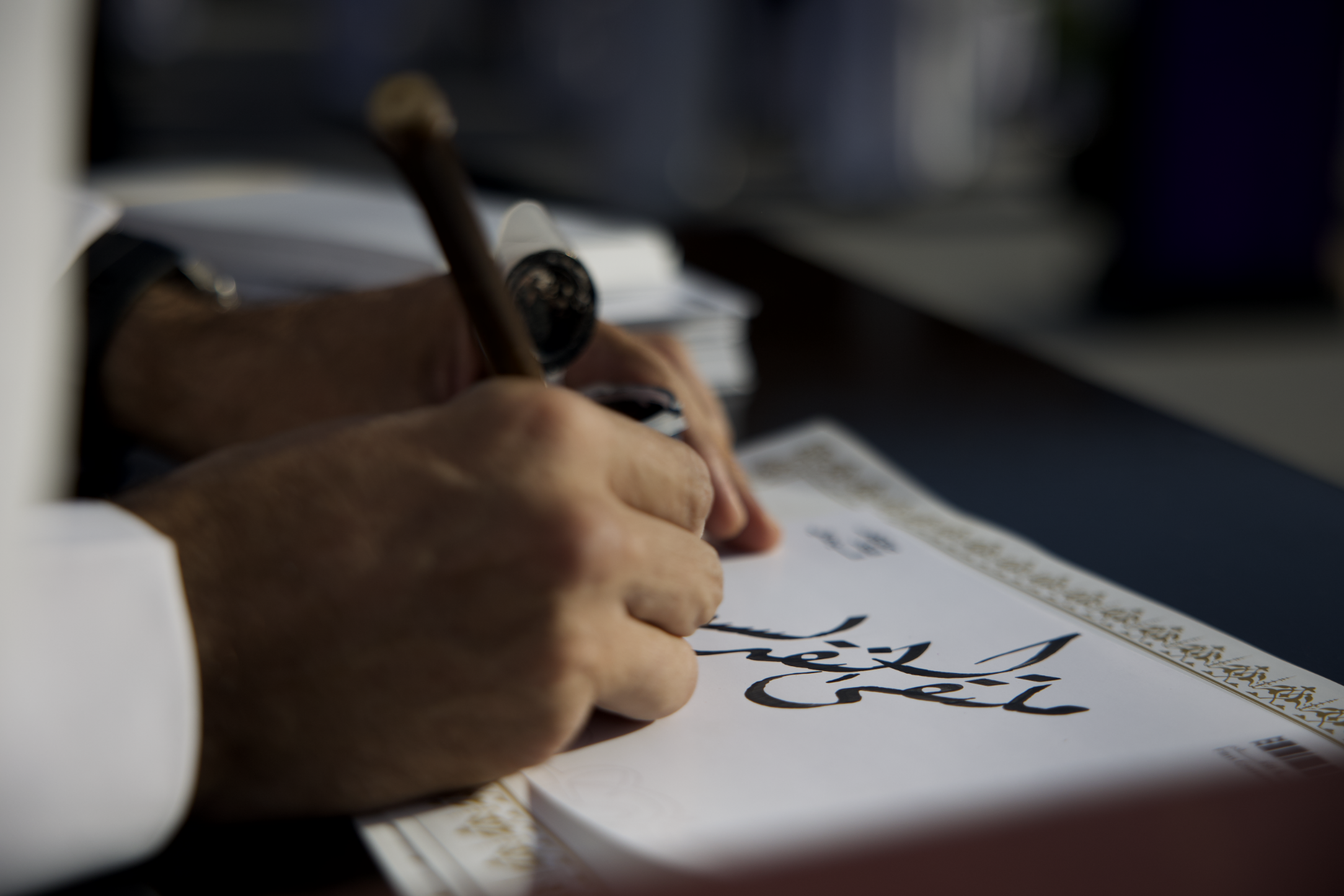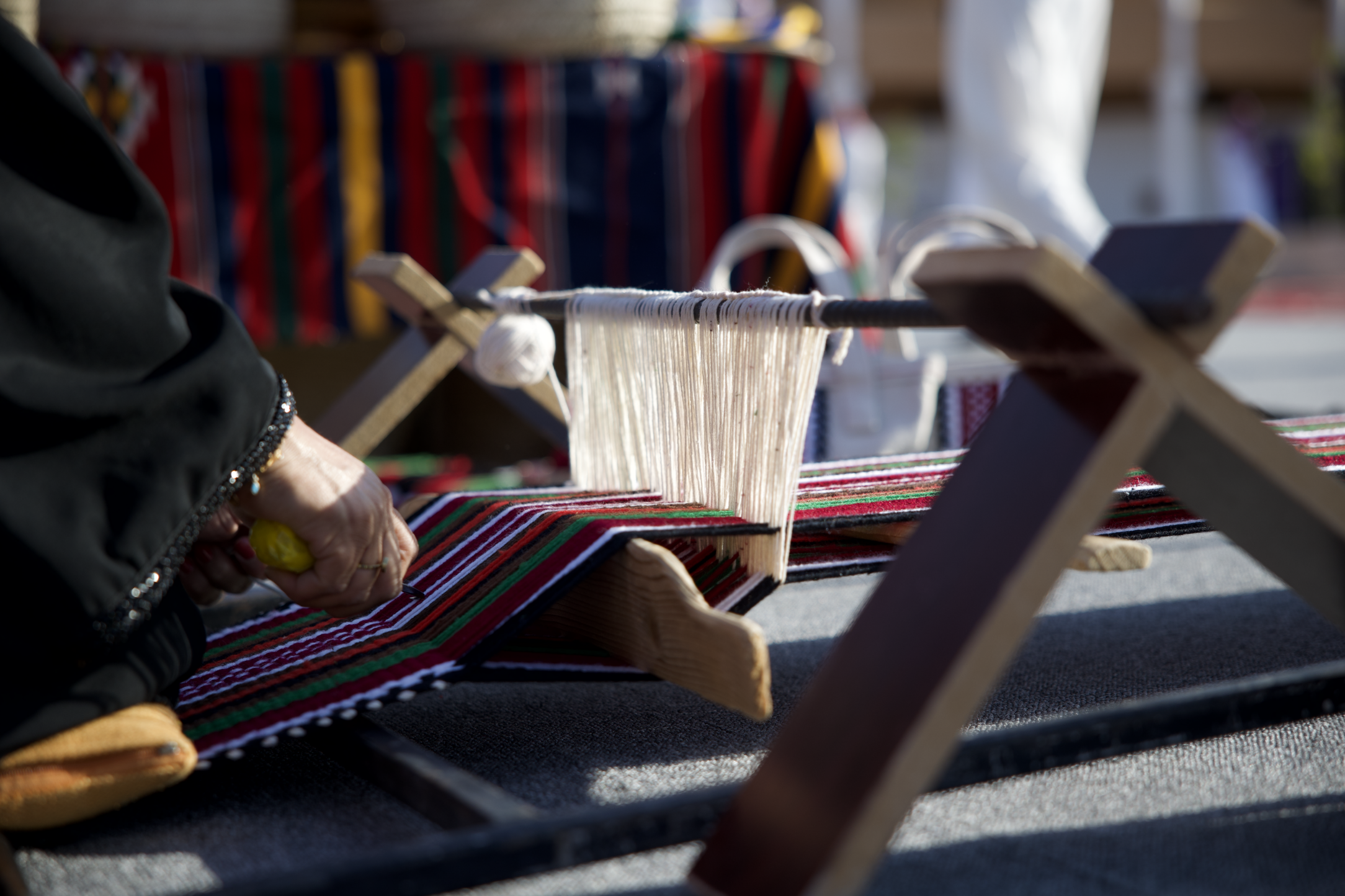The Film Criticism Conference is a significant event that brings together a distinguished group of film critics and cinema specialists from around the world. It serves as an engaging platform for exploring and discussing the latest trends and developments in the world of cinema and film criticism. Over the course of the 7-day event, participants will have the opportunity to review, evaluate, and discuss notable films while addressing current issues in film criticism.
The conference will feature panel discussions, interactive workshops, and special film screenings showcasing carefully selected works that highlight innovative experiences and new ideas in cinema.
The program covers a wide range of topics, including the analysis of contemporary films, the impact of technology on cinema, theoretical advancements in film criticism, as well as Arab and global cinema, animated films, and other relevant areas. Renowned critics, scholars, and filmmakers with extensive expertise in cinema and film criticism will actively participate in the event.
Sound in Cenima
Sound in cinema is an ethereal element that the camera lens cannot capture, yet it manifests deeply, reflecting the filmmakers' craftsmanship. The soundtrack harmonizes with the cinematic rhythm to weave a creative aura that adds immersive sensory dimensions to the image. In the absence of music, natural sound emerges as an indispensable artistic tool, drawing the viewer into the film's world. This magic also extends to the sounds of nature, the human body, sound effects, and even the sound of silence in spoken cinema.
All of these elements serve to reweave the details of everyday life within the cinematic frame, enriching the narrative experience and enhancing its emotional impact.
The opening ceremony program
The opening ceremony of the conference will be an exceptional show that reflects the spirit of Saudi cinema in the most beautiful way, starting with the performance of the Royal Anthem, followed by a promotional video for the Film Criticism Conference, followed by a dialogue session with His Excellency Mr. Abdullah Al-Muhaisen to talk about his rich career in the world of cinema. The ceremony will conclude with an exceptional visual and musical artistic show.
Opening ceremony presenter
Cinema in Defense of Imagination
founding partner in "Nass" and "The Stage" companies, and a presenter of entertainment and entrepreneurial events in Saudi Arabia. A member of the "King Khalid Award" jury since 2016, and participated in judging the "Prince Mohammed bin Salman Incubator". He was a broadcaster on "Alf Alf" radio, and presented the programs "Al-Salfa Jad" and "Sahranin Ma'akum Bel-Bait" on MBC.
Mohammed Al-mousa
Writer/media professionalVideo showings of the opening ceremony
Opening ceremony presenter
It reviews the Riyadh Conference program for the year 2024, focusing on what distinguishes this edition and the important additions to it, with a comprehensive look at the programs and events
Documentary film about His Excellency Mr. Abdullah Al-Muhaisen
A film about the main character, “His Excellency Mr. Abdullah Al-Muhaisen”, which includes excerpts from previous interviews with him, narrating his life and most important milestones, or interviews with people close to him, and excerpts from the most famous films in which he shone, his vision and his influential mark in the field of cinema, in addition to excerpts from his talk about his films and sources of inspiration.
Dialogue seminar
Dialogue seminar with His Excellency Mr. Abdullah Al-Muhaisen (First proposal)
A Saudi director born in Mecca in 1947 (1367 AH). He is considered one of the pioneers of the film industry in the Kingdom of Saudi Arabia, and the first Saudi to specialize in cinema. He laid the first foundations for the concept of the film industry in the Kingdom.
Interviewed by critics:
Ahmed Al-Ayad
Ahmed Shawky
Artistic show
Visual and musical art show
Inspired by Cinema Paradiso, it employs scenes from several international and Arab films, inspired by the film and its magical moments in contemplating cinema, entering its worlds, and the audience being affected by the magic of the screen, and the events in which the cinema hall is part of the story. The film Cinema Paradiso, which was shown in the eighties, encouraged directors from around the world to tell stories based on the space of the place, which is the cinema hall, and its emotional and cultural connection to the audience.
When the film was imitated with different plots in other cinematic works, this narrative technique received the attention of critics and their keeping pace with its multiple manifestations visually, geographically and artistically. The last experience in this context was undertaken by director Pan Nalin in his film Last Film Show, which was produced in 2022.
In parallel with this visual show, the pianist will perform live the music of the film (Cinema Paradiso) in front of the audience, to add a realistic aesthetic dimension that places the audience in the worlds of this unique technical experience.
Artistic show
Sulaf Al-Ali
A Saudi pianist, she began her musical journey since childhood. She trained at the Music Institute in Bahrain, specializing in piano and violin, in addition to investing in private training with professional pianists over the years. Sulaf is distinguished by her unique creativity and deep passion for music, and she constantly seeks to apply her creative skills in various fields. She is very ambitious, and has an academic education in architecture, in addition to professional experience in graphic design, which highlights the diversity of her interests and her ability to integrate art and music in her work in an innovative way.
Main Stage
Master Class
Criticism between cinema, literature and arts
Ibrahim Alariss' writings have inspired readers across the Arab world because he has employed his encyclopedic understanding of arts and culture to make film criticism to rise above merely analyzing the film. Rather he links film criticism to a larger context, taking into account the heritage of human creativity in various arts. There is a constant presence in Alariss' writings of literature, music, visual arts, and other art forms that the he revels in as an inexhaustible source and a special entry point in examining cinema.
Speakers & Moderators
How can we understand the present if we're clueless about the past? Why is there this idea that silent films are primitive, when the truth is that cinema at its birth was wildly inventive? The majority of silent films had some form of colour, and of course they were never silent: musical accompaniments of all forms were always a crucial element of every screening. We'll be discussing where these prejudices spring from, and also talk about how a knowledge of silent cinema offers the best opportunity for understanding editing, camera movement, and rhythm, not to mention comic timing. There's a reason why Pedro Almodóvar's newest film The Room Next Door includes a crucial scene where the protagonists watch a movie from 1925!
In the Company of Critics
Critic and filmmaker... an ambiguous relationship
Khairy Beshara worked for years as a film critic, and when he started making his films, he received wide support from critics of his generation. However, once he decided to leave the realm of realistic cinema and enter new film territories, critics did not welcome the change with great enthusiasm, which led to a rift between him and the critics that was not healed until a new generation emerged that dealt with his films with freedom and broad horizons. How does Beshara view this journey? Through an interesting dialogue with director and writer Wael Abou Mansour.
When the film was imitated with different plots in other cinematic works, this narrative technique received the attention of critics and their keeping pace with its multiple manifestations visually, geographically and artistically. The last experience in this context was undertaken by director Pan Nalin in his film Last Film Show, which was produced in 2022.
In parallel with this visual show, the pianist will perform live the music of the film (Cinema Paradiso) in front of the audience, to add a realistic aesthetic dimension that places the audience in the worlds of this unique technical experience.
Khairy Beshara
director
Beyond Criticism
Bollywood Musicals and how it represented the changing dynamics of Indian Society
Bollywood is the melting pot of Indian Culture. It represents and the society, politics and changing nature of Indian citizenry as a whole. Majority of Hindi commercial-popular films are musicals, songs and dances are not regarded as ‘interruptions’ in the narrative, rather it enhances the pleasure of the audience. Over the decades, songs and dance numbers in Hindi films maintained the cultural hegemony of the nation as well as challenged it, at times. These performances created stars, earned profit and always attracted audiences to enthrall the cinema halls. Not only did these musicals create history, they also recorded it. This lecture traces the trajectory of Indian society by analyzing the Hindi musicals over the decades.
Speakers & Moderators
While the burgeoning film industry in Saudi Arabia is relatively recent, the relationship between Saudi culture and sound dates back to ancient times. The nation that invented poetry and has long utilized words, phrases, melodies, and music to shape a unique identity is today seeing its artists draw from this rich auditory heritage. They aim to blend it with the visual aspects of cinema in an effort to create a distinctive national cinema. What is the state of sound in contemporary Saudi cinema? The speakers in this session will address this question.
In the Company of Critics
From the personal story to global horizons
Asmae El Moudir needed nothing more than to delve into her own memories to achieve international success, reconstructing the collective memory of her family, community and country to create "Mother of All Lies" which has been appreciated by audience and critics around the world. How can a filmmaker choose from his past what is suitable for film material? And how does a critic deal with the sensitivity of personal and political topics when tackling a film? Director Asmae El Moudir discusses her journey with memory, creativity and criticism with critic Abdullah Al Oqaibi.
Master Class
50 Years of Film Criticism
In 1968, just a year after one of the most turbulant moments in Eygptian history, a young man named Kamal Ramzy began his journey as a film critic. For more than 50 years and through many changes in film and in the world, he has written about Egyptian, Arab and international cinema, about filmmakers and stars. He is renowned for his ability to delve into the depths of an actor's process and for a writing style that has stayed away from cliches and hyperbole in favor of wit and craft. Kamal Ramzy recalls fifty years and more of frilm criticism, decades during which the film industry ebbed and flowed at home and abroad. How did this independent critic deal with all these fluctuations?
Speakers & Moderators
Those outside the region are accustomed to describing it as the “Eastern Bloc,” as if it were a single, homogeneous entity, but in reality it is one of the most diverse places in the world, especially when it comes to creativity and the arts. The panelists and moderator come from four different Eastern European countries, each with its own film school and its own unique contribution to the field of cinematic sound. How has sound played a role in shaping films in these countries? This is what the panel will attempt to answer.
In the Company of Critics
For whom are films made... between artistic and popular?
For whom films are being made? Do filmmakers tell stories that appeal to a broad audience? Or do they express a personal vision even if its expected audience is limited? In light of the great leap of the Saudi film industry, the value of the question of artistic and commercial cinema emerges as a daily dilemma for filmmakers. Can a film be satisfied with winning festival awards and critics' appreciation? Or does the choice of the cinema audience remain the main determinant of success? A rich discussion brings together director Mohammed Al-Salman and critic Musab Al-Omari.
Beyond Criticism
Spectating in the Blind: Film Sound and Non-Western Philosphy
Responding to film studies’ longstanding neglect of non-Western philosophies, this presentation will offer a case study of how cinema can “embody” Buddhist eco-philosophy. Specifically, The lecturer will present a close reading of Lois Patiño’s docudrama Samsara (2023), wherein he puts Buddhist thought and feeling into conversation with haptic visuality and aurality – concepts that have gained particular currency in film studies’ contemporary “turn” towards embodiment, the sensorial and the experiential. The presentation will be honing in specifically on Samsara’s bardo sequence, which instructs audiences to “spectate” with their eyes shut for 15 minutes.
Speakers
Critics’ Stage
Presentations
Who are the most influential Italian film composers? And what makes their contributions to cinema so unique? We will examine ten internationally-renowned musical artists (along with one lesser-known composer) and identify the unique trademark or originality that sets them apart.
Beyond Criticism
On a rainy night, dominated by shadows and mystery, director Tsai Ming-liang takes us on a sublime journey in Goodbye, Dragon Inn — a film devoid of dialogue, rich in minimalist auditory storytelling. Set within a Chinese cinema palace on the brink of closure, the film presents a screening of director King Hu's classic Dragon Inn to a diverse audience. Their paths intersect in winding ways, whether they are human or ghostly. The film masterfully blends the physical space of the cinema with a deeper exploration of time, memory, and the supernatural, offering an atmospheric experience that transcends conventional narrative structures. Through minimal sound and evocative imagery, it draws the viewer into a haunting reflection on the fleeting nature of cinema and existence.
Presentations
Dziga Vertov described his experimental work “Enthusiasum: Donbass Symphony” as an “expression of the complex interaction between sound and image.” Through this film, he portrays the lives of coal miners in the Donbass industrial region of Ukraine, emphasizing their struggles to meet production quotas set by Stalin’s five-year plan. Vertov creates a deliberate balance between harmonious and contrasting sounds, using factory and machinery noises as essential components of the soundtrack while allowing limited space for human voices. This approach reflects the spirit of the industrial age and the daily realities of the workers.
Regarded by critics as the fourth work in Italian director Michelangelo Antonioni’s renowned trilogy, deeply embodying the psychological alienation that has always been a cornerstone of Antonioni’s cinema. The film unfolds among the industrial bourgeoisie in Italy, where Giuliana, played by Monica Vitti, faces a significant challenge in concealing her fragile mental state from her successful husband, Ugo. As Giuliana’s repeated confrontations with her husband’s social environment escalate, her feelings of vulnerability and decline intensify, revealing a profound internal struggle set against a backdrop of loneliness.
Presentations
(Sound as the Heart of Liberation War Films of Bangladesh)
How did music and lyrics convey themes of colonial discrimination, resistance against oppression, the struggle for freedom, and patriotism in Liberation War films in Bangladesh? The discussion will focus on four significant documentaries and feature films based on the Liberation War, accompanied by selected musical excerpts.
(Music, Sound, and Pan-Africanism)
How did music and lyrics convey themes of colonial discrimination, resistance against oppression, the struggle for freedom, and patriotism in Liberation War films in Bangladesh? The discussion will focus on four significant documentaries and feature films based on the Liberation War, accompanied by selected musical excerpts.
(Woman Voice in Tunisian Cinema)
Women's cinema is an important feature of Tunisian filmmaking, and has helped to spread modern ideas in the country. Since the 90s, several films directed by women have appeared. These films have dared to break taboos linked to the situation of women. They paved the way for the emergence of another new generation of female directors. While they continue to talk about the situation of women, the filmmakers approaches are different. The context in which the filmmakers have lived plays a role has been key to the different approaches.
The classic melodrama “Pyaasa” directed by Indian filmmaker Guru Dutt, stands as one of the peaks of Indian cinema. It masterfully blends music, poetry, and dance, but here it takes on a melancholic tone, centered around the ambitions of a young poet named Vijay, portrayed by Dutt himself. The film captures his relentless pursuit to publish his poetry as he faces rejection, life’s challenges, and his search for love.
Workshops
Workshops’ trainers
The Art of Watching Films
"What is the Art of Watching Movies?" Developing the skills to analyze films is important for both filmmakers and those interested in cinema alike. In addition to extensive viewing, we need to train ourselves to recognize the basic elements of filmmaking including script, cinematography, editing, costume and set design, and, of course, directing.
Writing Short Films
“The Short Film Script Writing Workshop” is designed for filmmakers, artists, novelists and aspiring writers who want to turn their ideas into short films. Through examples, we will look at the broad range of short films and analyze the storytelling techniques. We will learn the basics of screenwriting, such as structure and character development. We will review and analyze ways to use narrative tools to write a screenplay and develop ideas through brainstorming sessions and receive constructive criticism.
From video essays to podcasts and back again.
From video essays to podcasts and back again. Mohamed Soliman takes us through the evolution of audiovisual film criticism. Finding your voice and hone your craft in appreciation of what we all love most: the movies!
Sound Reviews: Podcast
The evolution of audiovisual film criticism is presented by Mohamed Suleiman from "Cinematology." Finding your voice and honing your craft in appreciating what we all love most: films!
Child and Family Program
Film scene script writing
The workshop is based on transforming a specific image or shot into a carefully written scene. The workshop begins by showing the participants an image, which should contain situations or characters that can be used dramatically.
• Stimulating imagination and creativity.
• Developing writing and expression skills.
• Developing the ability to observe and detail.
Sound from Nature
An interactive workshop for children on making sounds using materials found in nature. It is a fun and educational activity that encourages children to explore the world of sound in an innovative way.
• Enhancing imagination and auditory taste in children and adolescents.
• Developing cooperation and teamwork skills.
• Exploring sound and art.
• Developing motor skills.
How to watch movies
It is an interactive workshop based on showing a short film suitable for children's ages, the film contains artistic messages. After the screening, the children are directed to an open discussion led by the trainer.
• Raising the expressive ability and artistic taste of cinema among young men and women.
• Enhancing critical thinking.
• Enhancing visual and artistic understanding.
Film Screening
Closing Ceremony Visual Show
A visual musical artistic presentation inspired by the music of the film "Escape," serving as a thread that connects scenes from international and Arab films depicting the desert. This thread harmonizes with the overall theme of the conference.
The journey begins in the depths of the Arabian desert, carrying its authentic meaning in the melodies of the bedouin chant that resonates alongside scenes from various deserts around the world, including the Kingdom. This is complemented by sounds from the same environment, such as the wind, the footsteps of camels, and more.
Accompanying this visual journey is a gradual auditory track, where the music from "Escape" intertwines with the sounds of nature in the desert and the voices of characters, together forming a unique symphony that reflects the spirit and diversity of the desert. The show also presents consecutive scenes from the films "The Lost Legend," "Theeb," "The Camel," "The Jockey," and "The Valley Road," drawing on their auditory and musical themes to depict various symbolic meanings, including conflict, mirage, and tranquility.
